4 estaciones, 4 lecciones transformadoras; con el Monje que vendió su Ferrari (ES/EN)
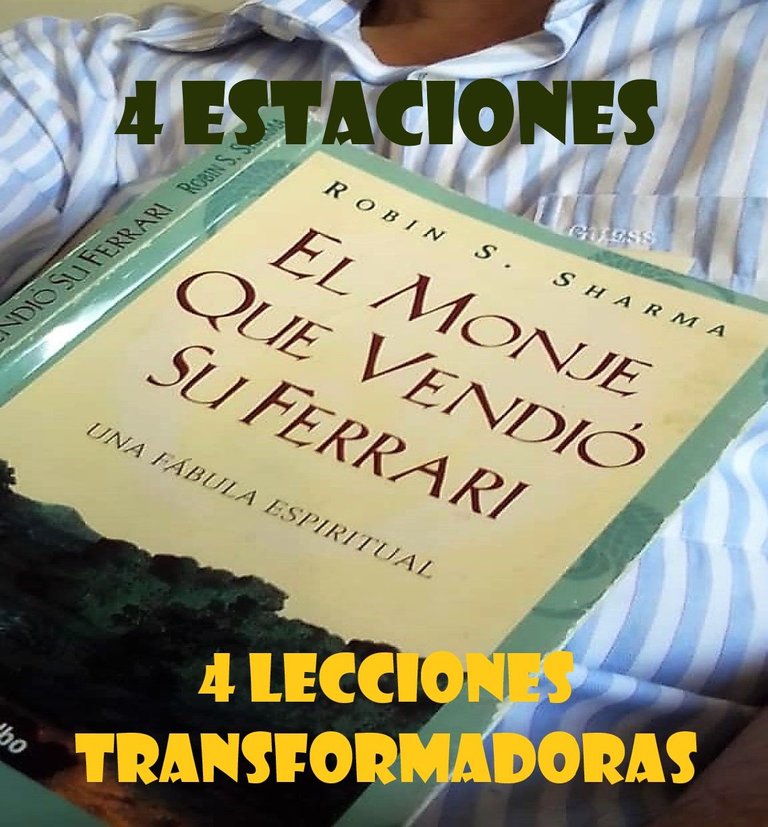
Imagen propia editada en Paint
En los momentos difíciles siempre aparece un libro.
Es la magia de las letras, el hechizo que vierte en nosotros la palabra escrita. Como en tantas fases por las que hemos pasado, en una de ellas apareció en mi vida este libro, cayó en mis manos. Y sin muchas expectativas de conseguir salidas con él, en ese momento, simplemente avancé, lo abrí, lo hojeé.
En la medida en que fui devorando su lectura sencilla, amena y clara; sus sutiles planteamientos, sobre todo directos; se fueron danto estaciones de transformación en mí en forma espontánea.
Debo confesar que atravesaba entonces, uno de los momentos más estresantes de mi vida en cuanto a horario laboral, presiones sociales y, sobre todo, una incapacidad de decidir que iba a hacer en los años siguientes…
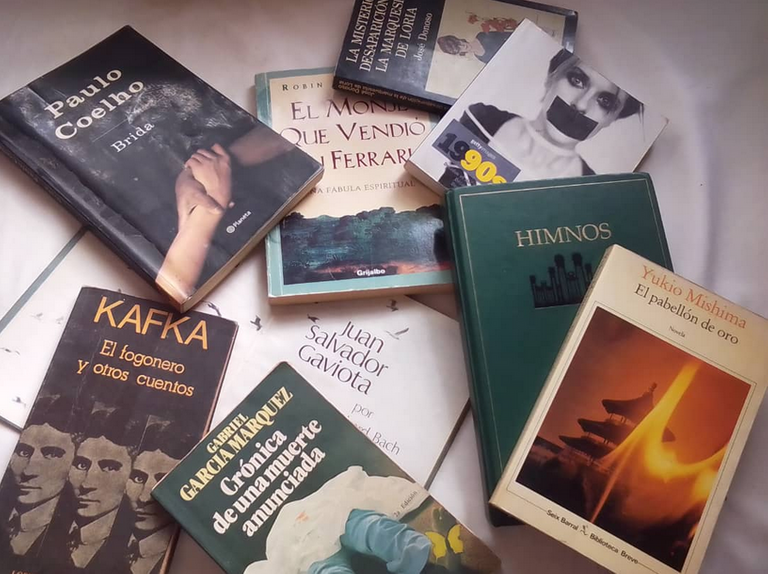
Imagen propia
Robin Sharma
Enseñando el desapego
Sí, ésta también es una de las enseñanzas del libro El monje que vendió su Ferrari, de Robin Sharma.; pues tu tiempo es valioso, y es tal vez el bien más preciado que tienes.
Cuando hay salud, gozo, paz y tranquilidad, el tiempo es el elemento que está allí diciéndonos que es irrecuperable, y nos permiten valorar lo que hay y lo que tenemos. Es el tiempo al que tenemos que mirar a la hora de hacer transformaciones; y aunque el dicho reza, que nunca es tarde, a veces sí es tarde.
En el libro, la felicidad es un recorrido, un trayecto; no es un punto de llegada; y es por eso que en mi experiencia, una vez que comencé a sentarme con Julián, a escucharle qué pasó y cómo transformo su vida, y dejó su carrera y sus pertenencias por escuchar su corazón, en un viaje maravilloso de autodescubrimiento; áreas, visiones y perspectivas, en mí, se fueron transformando.
Quisiera simplemente y sin extenderme mucho, compartir cuatro de esas estaciones que el libro me regaló:
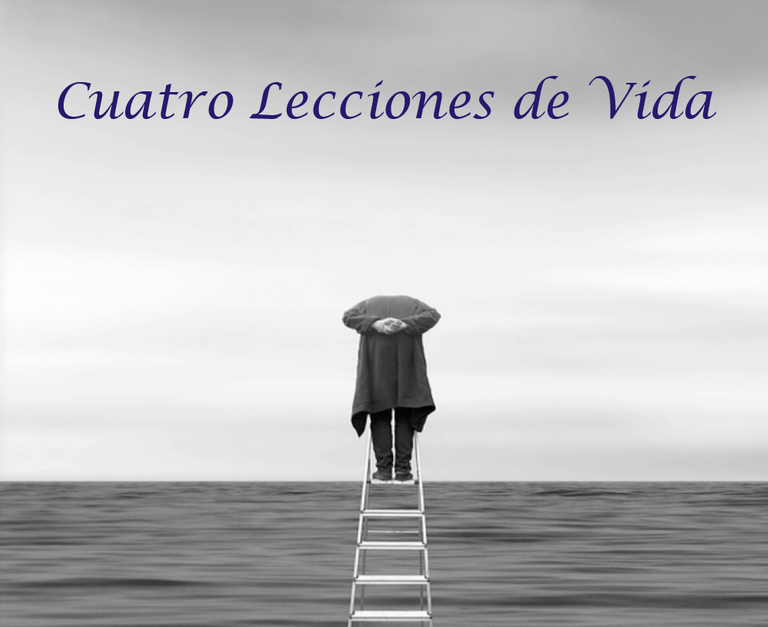
Pixabay-floede editada en Paint
Estación 1:
¿Cuántas veces, durante el tiempo de inicio y desarrollo de nuestras carreras, cuando comenzamos a trabajar, nos hemos visto envueltos en ciclos interminables, que cada vez exigen más de nuestra productividad, con la finalidad de satisfacer necesidades que el mundo moderno nos ha impuesto?
Puede que llegue un momento, como me pasó a mí, que a los 40 años ya tenía cansancio excesivo, y mis facciones mostraban signos de envejecimiento.
Había arrugas en mi rostro, cansancio en mis ojos, ojeras; y unas ganas increíbles de seguir durmiendo cuando amanecía.
Hay que entender que, las necesidades materiales pueden llegar un momento en que exijan ser mayores cada vez más, y eso es implica concentrarnos casi completamente en ellas y robarle tiempo a otras áreas de nuestras vidas que necesitamos también desarrollar.
Son esos los momentos en los que nos olvidamos de interaccionar con nuestras familias, con nuestros amigos; de tomarnos un tiempo para nosotros mismos, de crear interiormente el equilibrio y las condiciones espirituales para mantener un estado de tranquilidad y de paz.
Si a su tiempo, no me doy cuenta del cansancio a esta edad tan temprana, no hubiese podido comenzar a priorizar en mi existencia lo que era el trabajo y lo que era la interacción social necesaria para mantener mi creatividad y mi disfrute.
Hubiese seguido dejando a un lado las relaciones que más riqueza interior me ofrecían, y a la gente que más amaba olvidada y sin respuestas. Y lo peor, a mí mismo, sin respuestas.
Estación 2:
Despertar de esta situación a veces no es fácil, porque el mundo exige necesidades cada vez más crecientes.
Si hoy tienes un auto, lo lógico es que mañana tengas dos y luego tres; y luego una aeronave.
Y no estoy siendo exagerado, ya que las necesidades que impone la sociedad moderna a través de publicidad y de patrones o modelos de vida que se llaman exitosos, nos pueden hacer caer en una noria de excesos, donde el tiempo, que es el factor más importante, se destina única y exclusivamente a la producción.
Lo triste es que al igual que Julián, la limitación de visión en el mundo puede hacernos creer que el único deber del ser humano es producir y tener.
Cundo puse un freno al exceso de trabajo y prioricé necesidades en mi vida, pude desarrollar las actividades que, durante tanto tiempo había dejado a un lado.
Comencé a escribir y a leer de nuevo; comencé a pintar. Y pude comprobar que es cierto, la creatividad se termina embotando; y esta falta de creatividad hace que se límite la visión del mundo.
Despertar no es fácil, es cierto; sin embargo, es posible y necesario.
Estación 3:
Desarrollar la espiritualidad, la conexión entre lo que es la esencia de ser humano, a la larga termina dándote esto como realidad, como verdad: No existen interpretaciones absolutas de las cosas que suceden, todo depende del punto de vista con que lo mires, desde la perspectiva que tengas.
Si tu perspectiva es oscura, una pérdida la vas a ver cómo ausencia; si tu perspectiva es clara y positiva, esa pérdida es el motivo de un cambio o de una transformación de vida.
Recordamos a Malika y la oportunidad de cambio que vio después del incendio.
Lo que nos hace diferentes a todos en realidad, son las diferentes perspectivas que tenemos.
Y lo excelente de herramientas que el hombre ha dejado escritas, y de las experiencias que otros, que logran crecer en medio de circunstancias difíciles, es que nos enseñan, que en todo existe una lección y que de todo podemos aprender.
Que las cosas suceden porque necesitamos transformar el rumbo en otro diferente o cambiar la manera de hacer las cosas.
En todo caso, el crecimiento siempre es la consecuencia y eso es lo importante.
Estación 4:
Por último y por ahora; si algo siempre se ha dejado en claro, es que las pasiones que tenemos mejoran nuestra vida.
Cuando hacemos lo que nos gusta creamos más, perfeccionamos el producto, pero, sobre todo, nos sentimos llenos o plenos mientras hacemos esa labor. Cuando la pasión se transforma en nuestro trabajo, la vida cambia y se vuelve placentera.
Algunas veces, por mucho que nos guste la profesión que hemos elegido, el tipo de trabajo o el sitio o la gente a nuestro alrededor con la cual laboramos, puede estar haciendo que tu pasión se opaque; y hay que evaluar y redefinir.
Robin Sharma nos deja algo sencillo en claro, y es que tu pasión, no solo debe mejorar tu vida sino también permitirte hacer un servicio a los demás.
Desde el punto de vista existencial, el ser es único pero necesita de la comunidad para poder desarrollarse en todo lo que haga. Ningún trabajo es positivo ni necesario si no rinde frutos para la comunidad o la colectividad.
El servicio se transforma en la manera que el ser humano tiene para sobrevivir y mejorar sobre la Tierra.
Cuando nuestra pasión, nuestro trabajo, eso que nos complace, no te deja un punto de crecimiento social, se transforma en una pasión muerta que a la larga, también va a hacerte sentir que estás perdiendo el tiempo.
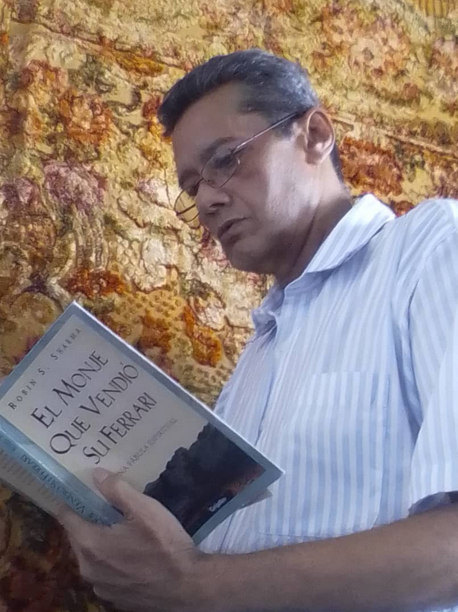
Imagen propia
Lecciones sencillas
Es lógico que, de pronto no podamos vender todo y salgamos sin nada a recorrer el mundo a buscar la clave de la felicidad eterna; también se hace lógico que la interiorización no necesita del desprendimiento total de lo material en tu vida; sin embargo, el minimalismo debe ser considerado.
Andar siempre con lo que menos pesa, no acumular lo que no se usa, no excedernos en el esfuerzo y disfrutar más.
Si bien, las lecciones que el libro transmite nos dirigen hacia la paz y se disfrutan, éstas son sencillas y otros ya las habían dicho anteriormente; pero es importante redescubrirlas o a reafirmarlas.
La posibilidad de reflexión y de captar enseñanzas, muchas veces viene dada por la facilidad con la que son transmitidas, por la suavidad con la que alguien te las ofrece.
Pienso que ejercicios diarios como los de la rosa pueden realizarse sin necesidad de desprenderse de grandes cantidades materiales de bienes, y te va enseñando a pensar y a controlar tus ideas; por lo que creo que sí hay puntos focales importantes en el libro que te van a permitir cambiar.
Su luz está presente; y aunque no creas que tu vida necesite un proceso de cambio, es muy posible que encuentres en estas palabras, lecciones o parábolas sencillas y limpias, que existe la necesidad en ti de mejorar.
Atrévete y léelo con confianza y con el deseo de siempre descubrir lo mejor.

Nota de fe:
Esta es mi participación en la Encuentros de Bienestar | Podcast #3. Club de Lectura; de nuestra comunidad de bienestar y crecimiento, de entrenamiento y alimentación de la inteligencia emocional Holos&Lotus; y que la ha convocado la amiga @janettyanez e @irvinc y dónde, en una primera parte, compartimos experiencias que este maravilloso libro nos ha regalado.
Corrí a participar inundado de deseos de dar un poquito de lo que el libro me dio a mí en medio de su simpleza aleccionadora; y así, con este entusiasmo invito a @creacioneslelys, @jcchelme; @oneray, @lindoro and @janaveda para que participen de esta hermosa iniciativa.


4 seasons, 4 transformative lessons; with the Monk who sold his Ferrari
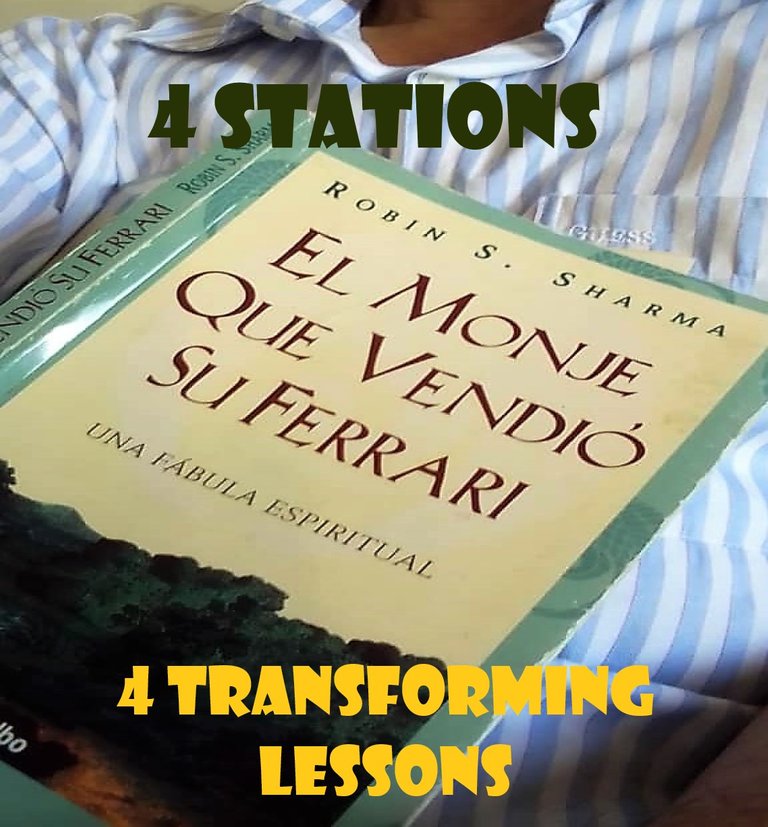
Own image edited in Paint
In difficult moments a book always appears.
It is the magic of letters, the spell that the written word casts on us. As in so many phases through which we have passed, in one of them this book appeared in my life, it fell into my hands. And without much expectation of getting out of it, at that moment, I simply went ahead, opened it, leafed through it.
As I devoured its simple, pleasant and clear reading, its subtle and, above all, direct approaches, spontaneously began to transform me.
I must confess that I was going through one of the most stressful moments of my life in terms of work schedule, social pressures and, above all, an inability to decide what I was going to do in the following years...

Own image
Teaching detachment
The teacher appears when the student is prepared and ready to receive the teachings.
Yes, this is also one of the teachings in Robin Sharma's book The Monk Who Sold His Ferrari; for your time is valuable, and it is perhaps the most precious commodity you have.
When there is health, joy, peace and tranquility, time is the element that is there telling us that it is irretrievable, and allow us to value what is there and what we have. It is the time we have to look at when it comes to making transformations; and although the saying goes that it is never too late, sometimes it is too late.
In the book, happiness is a journey, a journey; it is not a point of arrival; and that is why in my experience, once I began to sit down with Julian, to listen to what happened and how he transformed his life, and left his career and his belongings to listen to his heart, in a wonderful journey of self-discovery; areas, visions and perspectives, in me, were transformed.
I would simply like to share four of those stations that the book gave me without going into too much detail:
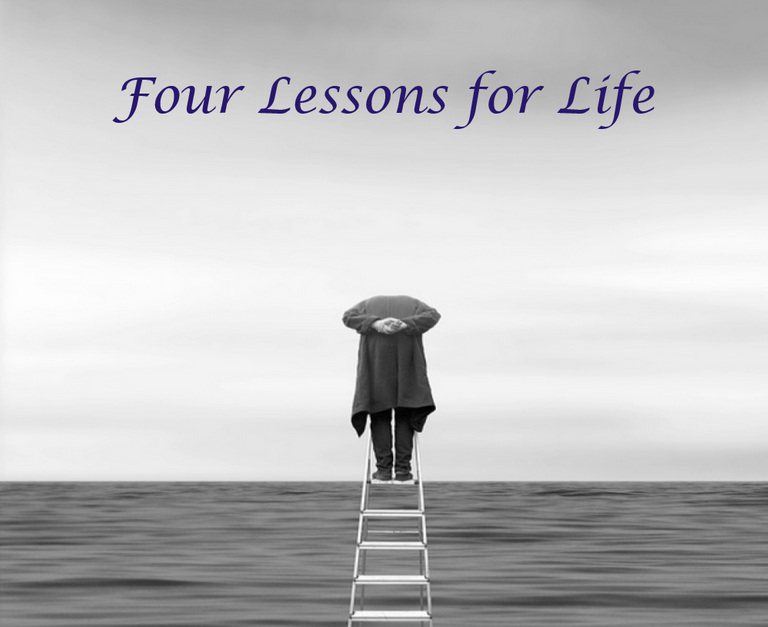
Pixabay-floede edited with paint
Station 1:
How many times, during the time of starting and developing our careers, when we began working, have we been caught up in endless cycles, demanding more and more of our productivity, in order to meet needs that the modern world has imposed on us?
There may come a time, as happened to me, when at the age of 40 I was already overtired, and my features showed signs of aging.
There were wrinkles on my face, tiredness in my eyes, dark circles under my eyes, and an incredible desire to continue sleeping when I woke up.
We have to understand that material needs can reach a point where they demand to be greater and greater, and that means concentrating almost completely on them and taking time away from other areas of our lives that we also need to develop.
These are the moments when we forget to interact with our families, with our friends; to take time for ourselves, to create within ourselves the balance and spiritual conditions to maintain a state of tranquility and peace.
If I had not realized the fatigue at such a young age, I would not have been able to begin to prioritize in my existence what was work and what was the social interaction necessary to maintain my creativity and enjoyment.
I would have continued to leave aside the relationships that offered me the most inner richness, and the people I loved the most forgotten and unanswered. And worst of all, myself, without answers.
Station 2:
Waking up from this situation is sometimes not easy, because the world demands ever-increasing needs.
If today you have one car, the logical thing is that tomorrow you will have two and then three; and then an aircraft.
And I am not exaggerating, since the needs imposed by modern society through advertising and life patterns or models that are called successful, can make us fall into a wheel of excesses, where time, which is the most important factor, is destined solely and exclusively to production.
The sad thing is that, like Julian, the limitation of vision in the world can make us believe that the only duty of human beings is to produce and have.
When I put a stop to overwork and prioritized needs in my life, I was able to develop the activities that I had put aside for so long.
I began to write and read again; I began to paint. And I was able to verify that it is true, creativity ends up dulling; and this lack of creativity limits the vision of the world.
Waking up is not easy, it is true; however, it is possible and necessary.
Station 3:
Developing spirituality, the connection between what is the essence of being human, ultimately ends up giving you this as reality, as truth: There are no absolute interpretations of things that happen, it all depends on the point of view you look at it from, from the perspective you have.
If your perspective is dark, you will see a loss as absence; if your perspective is clear and positive, that loss is the reason for a change or a life transformation.
We remember Malika and the opportunity for change she saw after the fire.
What makes us all different, really, are the different perspectives we have.
And the excellent thing about the tools that man has left written, and the experiences of others who manage to grow in the midst of difficult circumstances, is that they teach us that there is a lesson in everything and that we can learn from everything.
That things happen because we need to transform the course into a different one or change the way of doing things.
In any case, growth is always the consequence and that is what is important.
Station 4:
Finally and for now; if anything has always been made clear, it is that the passions we have enhance our lives.
When we do what we love we create more, we perfect the product, but, above all, we feel full or fulfilled while doing that work. When passion becomes our work, life changes and becomes pleasurable.
Sometimes, as much as we love the profession we have chosen, the type of work or the place or the people around us with whom we work, may be making your passion opaque; and you have to evaluate and redefine.
Robin Sharma makes something simple clear, and that is that your passion should not only improve your life but also allow you to do a service to others.
From the existential point of view, the being is unique but needs the community to be able to develop in everything he does. No work is positive or necessary if it does not bear fruit for the community or collectivity.
Service becomes the way that the human being has to survive and improve on Earth.
When our passion, our work, that which pleases us, does not leave you a point of social growth, it becomes a dead passion that in the long run will also make you feel that you are wasting your time.

Own image
Simple lessons
It is logical that, suddenly we cannot sell everything and go out with nothing to travel the world in search of the key to eternal happiness; it is also logical that internalization does not require the total detachment of the material in your life; however, minimalism should be considered.
Always walk with what weighs less, do not accumulate what is not used, do not overexert ourselves and enjoy more.
Although the lessons that the book transmits lead us to peace and enjoyment, they are simple and others have already said them before; but it is important to rediscover or reaffirm them.
The possibility of reflection and of capturing teachings is often given by the ease with which they are transmitted, by the softness with which someone offers them to you.
I think that daily exercises like the ones in the rose can be done without the need to get rid of large amounts of material goods, and it teaches you to think and control your ideas; so I think that there are important focal points in the book that will allow you to change.
Its light is present; and even if you do not believe that your life needs a process of change, it is very possible that you will find in these simple and clean words, lessons or parables, that there is a need in you to improve.
Dare and read it with confidence and with the desire to always discover the best.

Note of faith:
This is my participation in the Wellness Encounters | Podcast #3. Book Club; of our community of wellness and growth, training and nourishment of emotional intelligence Holos&Lotus; and that has been convened by the friend @janettyanez and @irvinc and where, in a first part, we share experiences that this wonderful book has given us.
I ran to participate flooded with the desire to give a little of what the book gave me in the midst of its sobering simplicity; and so, with this enthusiasm I invite @creacioneslelys, @jcchelme; @oneray, @lindoro and @janaveda to participate in this beautiful initiative.

Reconocimientos: / Acknowledgments:
Contenido propio. / Own content.
Barras separadoras: / The separator bars:
Pixabay-PixalineLogo de English editado en Paint / English logo edited in Paint by:
Pixabay-PixalineAgradecimiento final editado en Paint de
Pixabay-Clker-Free-Vector-Images


https://twitter.com/ER5801/status/1562931055346302976
The rewards earned on this comment will go directly to the people sharing the post on Twitter as long as they are registered with @poshtoken. Sign up at https://hiveposh.com.
Thanks a lot
Congratulations @emiliorios! You have completed the following achievement on the Hive blockchain and have been rewarded with new badge(s):
Your next target is to reach 1500 comments.
You can view your badges on your board and compare yourself to others in the Ranking
If you no longer want to receive notifications, reply to this comment with the word
STOPTo support your work, I also upvoted your post!
Support the HiveBuzz project. Vote for our proposal!
Según Séneca, en su libro De la brevedad de la vida, «No tenemos escaso tiempo, sino que perdemos mucho». Y pienso que tiene razón: perdemos tiempo al ir corriendo como ciegos tras la idea de felicidad que nos han vendido, cuando bien podemos disfrutar de un nuevo amanecer o de una simple conversación.
Excelentes lecciones las que has aprendido a través del libro y tus experiencias de vida. Me ha gustado la publicación. Saludos!
Muchas gracias @juniorgomez y siempre es un gusto leerte.
Bendecida noche @emiliorios, excelente disertación, mejor explicado imposible. Me agrado leerle, gracias por compartir.
Gracias a tí por la visita.
Excelente contenido @emiliorios. Gracias por tu aporte a la iniciativa
@tipu curate 3
Upvoted 👌 (Mana: 25/55) Liquid rewards.
Gracias por el apoyo de siempre @damarysvibra
El libro es un compendio de grandes enseñanzas. Es verdad que todos necesitamos las cosas materiales, pero si centramos la vida allí es probable que vivamos sumidos en la angustia. El autor nos invita a mirar las cosas de otro modo para lograr una vida más plena. Excelente publicación estimado amigo @emiliorios. En el podcast tendremos oportunidad de conversar ampliamente sobre el tema. Gracias por participar de la iniciativa. Que estés bien. Un fuerte abrazo desde Maracay.
Gracias amigo @irvinc y es que ha sido un gusto participar.
Gracias por tu participación en la iniciativa amigo @emiliorios 🤗, ciertamente disfrutaremos de las experiencias y enseñanzas de esta excelente obra, que nos transmite a traves de sus hojas un enriquecedor mensaje.
Al leerte pude sentir que al igual que a mi, fuiste retroalimentándote de cada parte de la historia que nos relata Robin Sharma y llevándola a tu propia vida👍
Una obra mas que nos ayuda a seguir creciendo 👏
Gracias @janettyanez por el apoyo de siempre.
Recibe mis saludos y bendiciones.
Me encanta como organizaste los conocimientos que te dejó la lectura, @emiliorios. Se nota que profundizaste en el libro y encontraste como apartarlo su contenido a tu propio crecimiento.
Mis más sinceras felicitaciones.